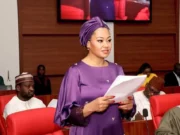The Economic Community of West African States (ECOWAS) will formally begin the process of approving Niger, Mali, and Burkina Faso’s withdrawal from the regional bloc on January 29, 2025. The bloc has also announced a six-month transitional period, lasting until July 29, 2025, to oversee the implementation of the withdrawal protocol.
This announcement was made by the President of the ECOWAS Commission, Dr. Omar Touray, at the conclusion of the 66th Ordinary Session of the ECOWAS Authority of Heads of State and Government, held at the Aso Rock Villa, Abuja.
Timeline of Withdrawal
The decision follows the expiration of the one-year notice period required under Article 91 of the Revised ECOWAS Treaty. This treaty mandates that any member state intending to withdraw must submit formal notification to the ECOWAS Authority of Heads of State and Government and wait for a year before withdrawal takes effect.
During this one-year period, the withdrawing state must settle any outstanding financial and legal obligations. Dr. Touray explained, “The authority acknowledges the notifications by Burkina Faso, the Republic of Mali, and the Republic of Niger of their decision to withdraw from ECOWAS. In accordance with the provisions of Article 91, the three countries will officially cease to be members of ECOWAS from January 29, 2025.”
He further noted, “The authority has decided to set a transitional period from January 29, 2025, to July 29, 2025, to allow for further dialogue and ensure the doors of ECOWAS remain open to the three countries during this period.”
Mediation and Next Steps
The mandates of Senegalese President Macky Sall and Togolese President Faure Gnassingbé, who have been mediating with the withdrawing states since June 2024, were extended until the end of the transition period. Dr. Touray commended their efforts over the past year, stating, “The authority extends the mandate of Presidents Gnassingbé and Sall to continue their mediation role up to the end of the transition period in the hopes of bringing the three countries back to ECOWAS.”
ECOWAS also directed its President of the Commission to begin formal withdrawal procedures after January 29, 2025, and to develop a contingency plan covering political, economic, and security implications. An extraordinary session of the ECOWAS Council of Ministers will convene in the second quarter of 2025 to adopt the withdrawal framework and contingency plan.
Context of Withdrawal
The withdrawal of Niger, Mali, and Burkina Faso follows a series of military coups in the three nations—Mali (2020 and 2021), Burkina Faso (2022), and Niger (2023). The coups led to their suspension from ECOWAS and strained relations with the bloc. The three countries accused ECOWAS of abandoning its founding principles, bowing to external influences, and imposing sanctions against their military regimes.
In response, the three states formed the Alliance of Sahel States, a regional bloc focused on defense and mutual support, signaling their shift away from traditional Western allies like France and toward closer ties with Russia.
Burkina Faso further solidified its withdrawal by introducing a new biometric passport in September 2024, which omitted the ECOWAS emblem.
ECOWAS Leadership’s Commitment to Unity
Nigeria’s President Bola Tinubu, who chairs the ECOWAS Authority, emphasized the need for unity and collective resolve in addressing regional challenges. He urged member states to remain committed to the principles that define ECOWAS.
“As we move forward to implement the outcomes of this summit, let us remain united in our determination and steadfast in our commitment to the principles that bind us together as a community,” Tinubu stated. He called for member states to ensure that decisions reached during the summit translate into tangible benefits for the people of West Africa.
Tinubu also acknowledged key attendees, including Moussa Faki, outgoing President of the African Union Commission, and Nana Akufo-Addo, Ghana’s outgoing president, lauding them for their contributions to regional stability.
Future Diplomatic Efforts
In discussions with German President Frank-Walter Steinmeier, President Tinubu reaffirmed Nigeria’s commitment to pursuing diplomatic solutions to the political crises in the withdrawing states. He emphasized that innocent citizens should not bear the brunt of military regimes’ actions.
The transition period will serve as a critical phase for defining the future relationship between ECOWAS and Niger, Mali, and Burkina Faso while preserving the bloc’s foundational ideals of peace, security, and democracy.





























